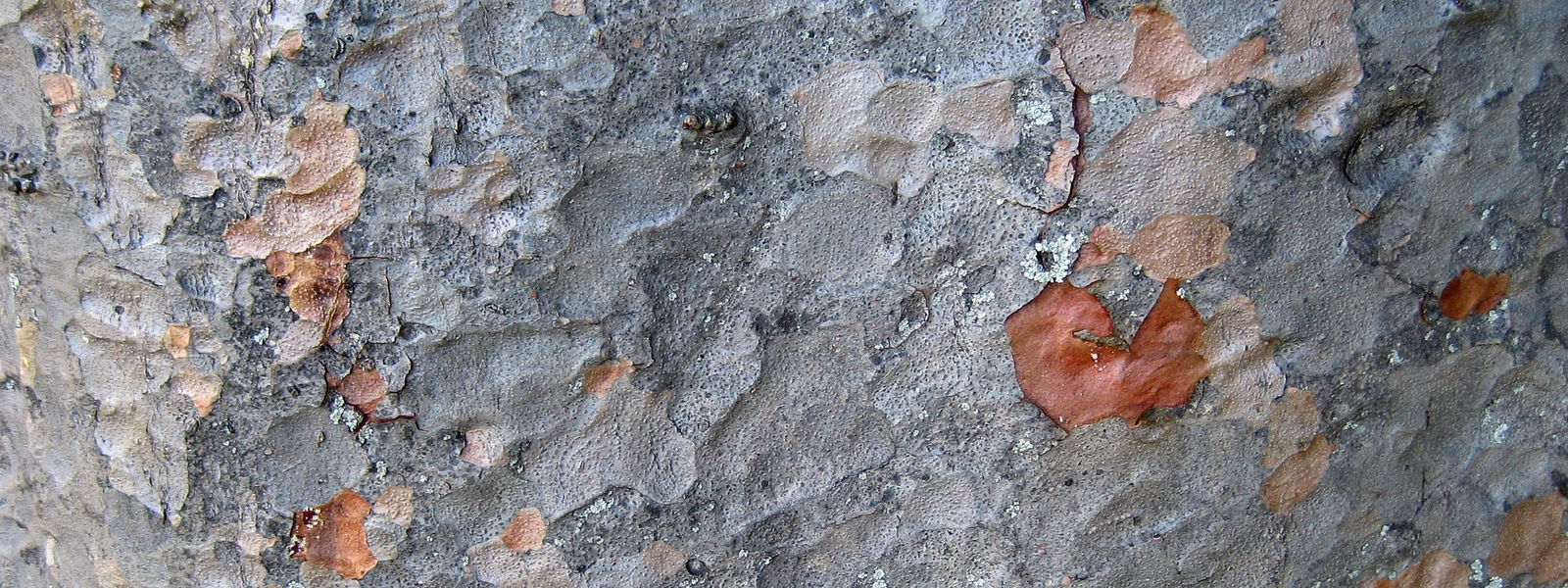Mike strides out into the bush. Alternately swishing at palm fronds and slapping at mosquitoes, he reminds me with every movement, every huff of breath, that it was my idea to come out here. It is late in the day. The air is close, and I can see rivulets of sweat cutting through the streaks of sunscreen on his neck, his damp back soaking through his t-shirt. He wades forward with the purpose of a man who just wants to get the task at hand over and done with. Like any conversation we have these days. I linger behind him and the distance opens up between us, as I let my fingertips trail through the bristle of weeping rimu.
We come to a place where the forest is old and thick, where the trees have collided and colluded in a series of embraces and struggles. Some, mid-fall, have found another to prop them up, a trunk resting in a nook here and there, whilst others have coiled around each other, need binding them together, forever twisting in a battle for the light.
Mike snaps the map open and exhales sharply through his nose. He tells me he’s certain we’ve gone wrong somewhere and looks at me expectantly. A cicada, suspended in a bowl of web, wiggles its legs in futility, as a spider dangles above. I don’t know the answer. He stares at me for another beat with a glimmer of triumph in his eyes. He is ready for an argument, but I don’t want to fight anymore.
Sap tears have bled from a lesion on a nearby kauri. The pale beads have hardened on the flaky bark, but the tree seems yet stoic, unrelenting. I wonder how you can tell when a tree is dead; and whether its dying is as long as its living. I wonder if there is a soft and subtle blackness that creeps in to disintegrate the trunk from the inside; if the rottenness takes a lifetime to seep to the surface.
I tip my head back to look at this tree. It is ancient; weather-battered, but as its magnificent foliage dances in the sunlight I am reminded of its beauty. I press my hands against it, pleading for the throb of a pulse or some other sign of life. A warmth spreads under my palms but it’s hard to tell if it’s in my hands or in the tree itself. I turn around to ask Mike, a hopeful smile spreading across my face, but he’s gone. At some point he’d decided to move on without me.
…
Biography
Elaine Dillon is still quite new to all this. She has chucked in her job to spend more time writing, to find out if she’s any good at it. Her work has been published by Reflex Fiction and Flash Frontier. She was long-listed in Reflex Fiction’s Winter 2017 competition. Website: elainedillonwriter.com
Image: Pixabay.com





